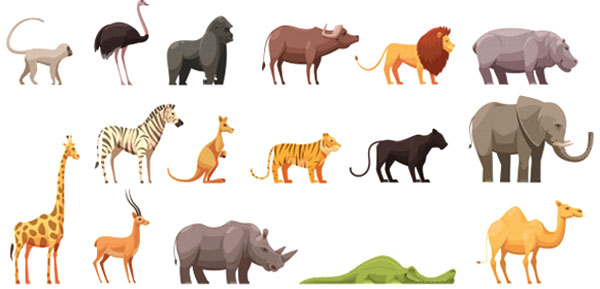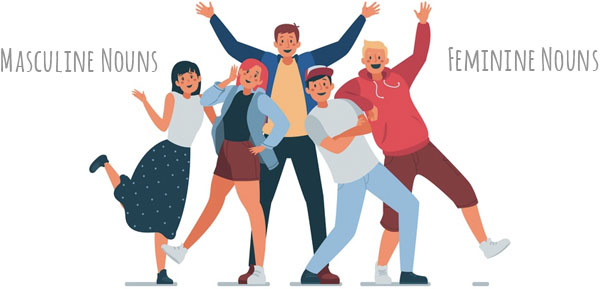One way in which nouns may be classified is by their gender. We call this system of organization “grammatical gender.”
In English, there are both 1) common gender nouns and 2) those that are considered “male” and “female” because they distinguish between feminine or masculine categories.
Common Gender Nouns
Common gender nouns are those that are used regardless of gender, that is, they are used for both males and females and do not signal or distinguish gender in any way.
Some examples of common gender nouns (which are used for any gender) in the English language are:
- artist
- baby
- child
- friend
- guest
- owner
- painter
- parent
- sibling
- singer
- student
- teacher
Masculine and Feminine Nouns:
On the other hand, some nouns distinguish between gender, with masculine terms referring to men, boys, and male animals, while feminine terms are used for women, girls, and female animals. Here are some examples of masculine and feminine nouns in the English language:
| Masculine | Feminine |
|---|---|
| actor | actress |
| boy | girl |
| brother | sister |
| father | mother |
| god | goddess |
| groom | bride |
| grandfather | grandmother |
| heir | heiress |
| host | hostess |
| husband | wife |
| king | queen |
| man | woman |
| master | mistress |
| nephew | niece |
| prince | princess |
| sir | madam |
| son | daughter |
| uncle | aunt |
Gender Neutral Titles in Professional Life:
A note about gender preference and moves toward gender neutrality is necessary at this point. Notably, the common noun for many of the ones listed above is the masculine one, for example, privileging the male terms “actor,” “heir,” or “host” as the default for either men or women.
However, to avoid gender distinctions, many professions have moved to more gender-neutral terms over the past decades. For example, rather than using “waiter” for a male and “waitress” for a female, it is common to refer to both as a “server.” Similarly, on an airline, rather than using “steward” for a male and “stewardess” for a female, it is common to refer to both as a “flight attendant.” You can see some additional examples below.
- waiter/waitress → server
- steward/stewardess → flight attendant
- fireman/firewoman → firefighter
- policeman/policewoman → police officer
- salesman/saleswoman → salesperson
- chairman/chairwoman → chairperson
Animals And Gendered Nouns

Animals present an interesting situation for gendered nouns. Typically, there is one general term for the animal (for example, horse, tiger, goose). Nonetheless, for many species of animals, we can distinguish between male and female. Often, but not always, this is the case for animals that have been domesticated by humans.
| animal | masculine | feminine |
|---|---|---|
| camel | bull | cow |
| cat | tom | queen |
| cattle | bull | cow |
| chicken | rooster | hen |
| duck | drake | duck |
| goat | billy | nanny |
| horse | stallion | mare |
| goose | gander | goose |
| lion | lion | lioness |
| pig | boar | sow |
| sheep | ram | ewe |
| tiger | tiger | tigress |

